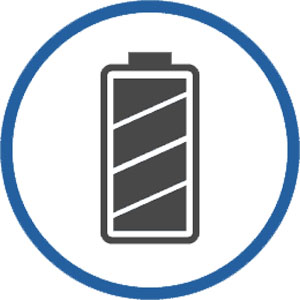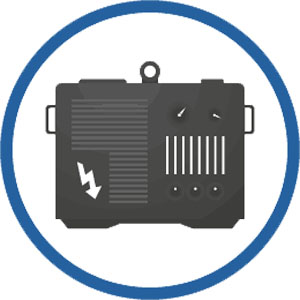How to Maintain UPS Batteries for a Longer Life

Protecting your sensitive equipment is incredibly important and an Uninterruptible Power Supply is the best method to do so. But then how do you protect your UPS? By looking after the batteries.
The batteries form the core of any UPS system. It can’t provide power in the event of an outage without them, but even batteries will need replacing over time. The expected life of most UPS batteries will be between 3-5 years but the life-span can be dramatically affected by environmental factors that can turn 5 years into much less. But with proper maintenance, it’s possible to keep your uninterruptible power supply battery life as optimal as possible!
What can reduce the life of my UPS batteries?
Temperature
Batteries in a UPS work best in a temperature range between 19-22 degrees Celsius. If the conditions are lower than this then the batteries will under-perform and likely sustain some damage. But equally, if the conditions pass above 22 degrees the batteries capacity will increase but their lifespan will get shorter.
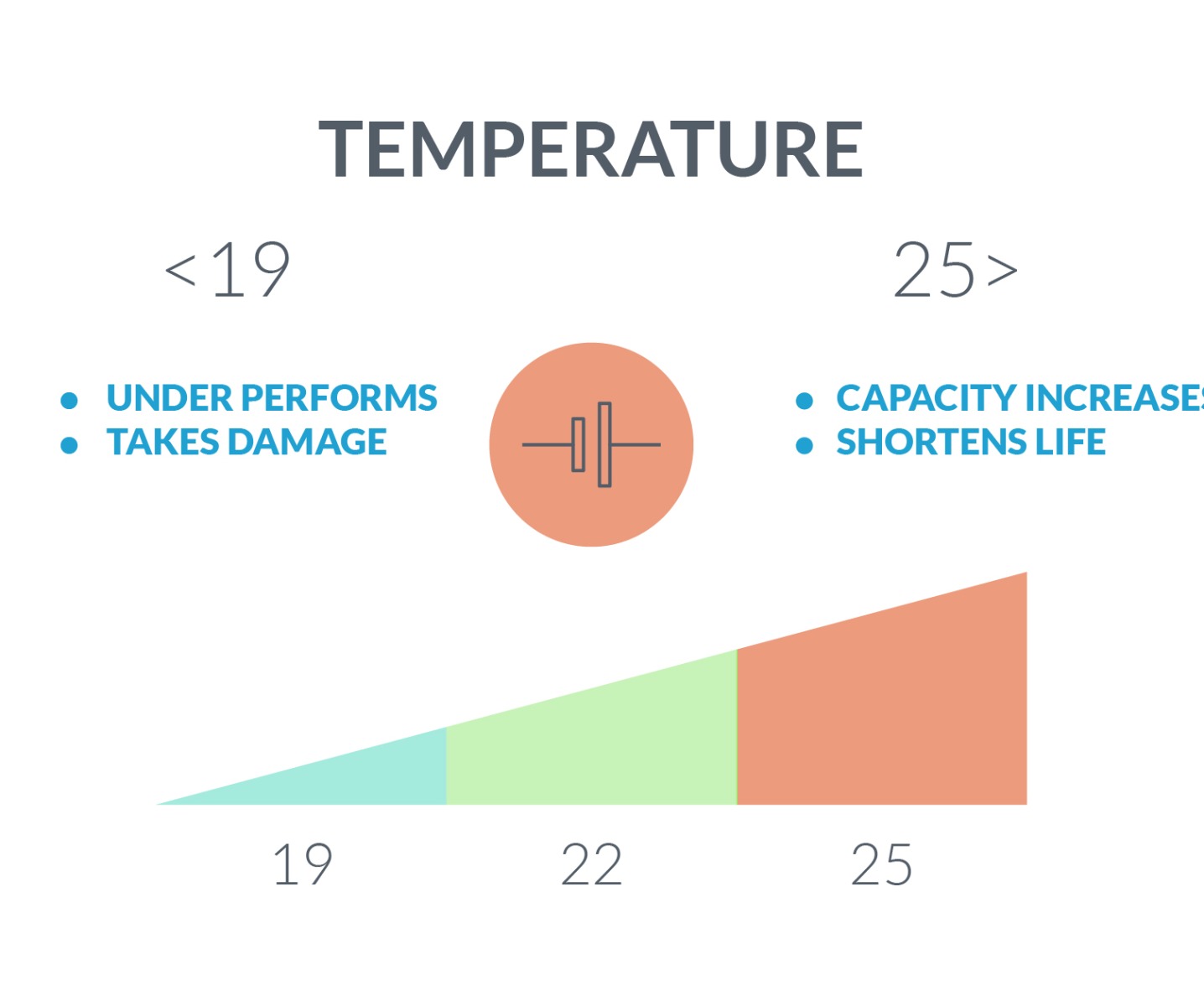
Keeping your battery temperatures within the optimum range is the best way to ensure their life-span is maximized. It’s estimated that for every 10°C above 25°C the battery life is halved – which means batteries operating at 35ºC will have their life expectancy halved and those running at 45ºC will only achieve 25% of their expected life. Which means a battery that was initially expected to last for 5 years will only last 18 months! In addition, if a single battery fails due to over-heating, this is likely to lead to a degeneration of the condition of the other batteries in the string.
In order to address this, most UPS systems will have some form of cooling built into the design. In addition, any battery arrangement must have a 10mm gap between each block to provide adequate ventilation.
Discharge Cycles
Frequent use has a negative effect on the ability of a battery to retain a charge. The amount of energy provided by the UPS every time the battery is forced to discharge will have a pronounced effect on the battery’s overall lifespan. In fact, constant discharging of batteries will reduce their expected life-span significantly. It isn’t just providing power during black-outs that will have an effect, frequent short-term activity to compensate for sags and swells will also reduce the total lifespan of your UPS batteries.
Battery Configuration
The other thing that can reduce the life of a battery is their position within a chain – Because individual batteries only deliver a relatively small amount of electricity, usually 12V, they are grouped to deliver the required amount of power. A single battery is referred to as a block. This block will be made up of a number of cells. When the blocks are connected together, they form a battery string.
The two ways to construct a circuit of batteries are in series or in parallel.
A single string of battery blocks can be connected in series end to end. The overall voltage achieved will be the total of all the individual blocks added together. If for example twenty 12V, 10Ah battery blocks are connected together in series this way; the result would be 240V with a 10Ah capacity.
A parallel battery string is a number of series strings wired in parallel. Each of the series strings must contain the same quantity of blocks. The primary reason for this configuration is to increase the Ah rating, the runtime of the UPS. Therefore, if using the previous example of the series string delivering 240V with 10Ah, if three such strings are then wired in parallel, the result would be a power supply of 240V with 30Ah.
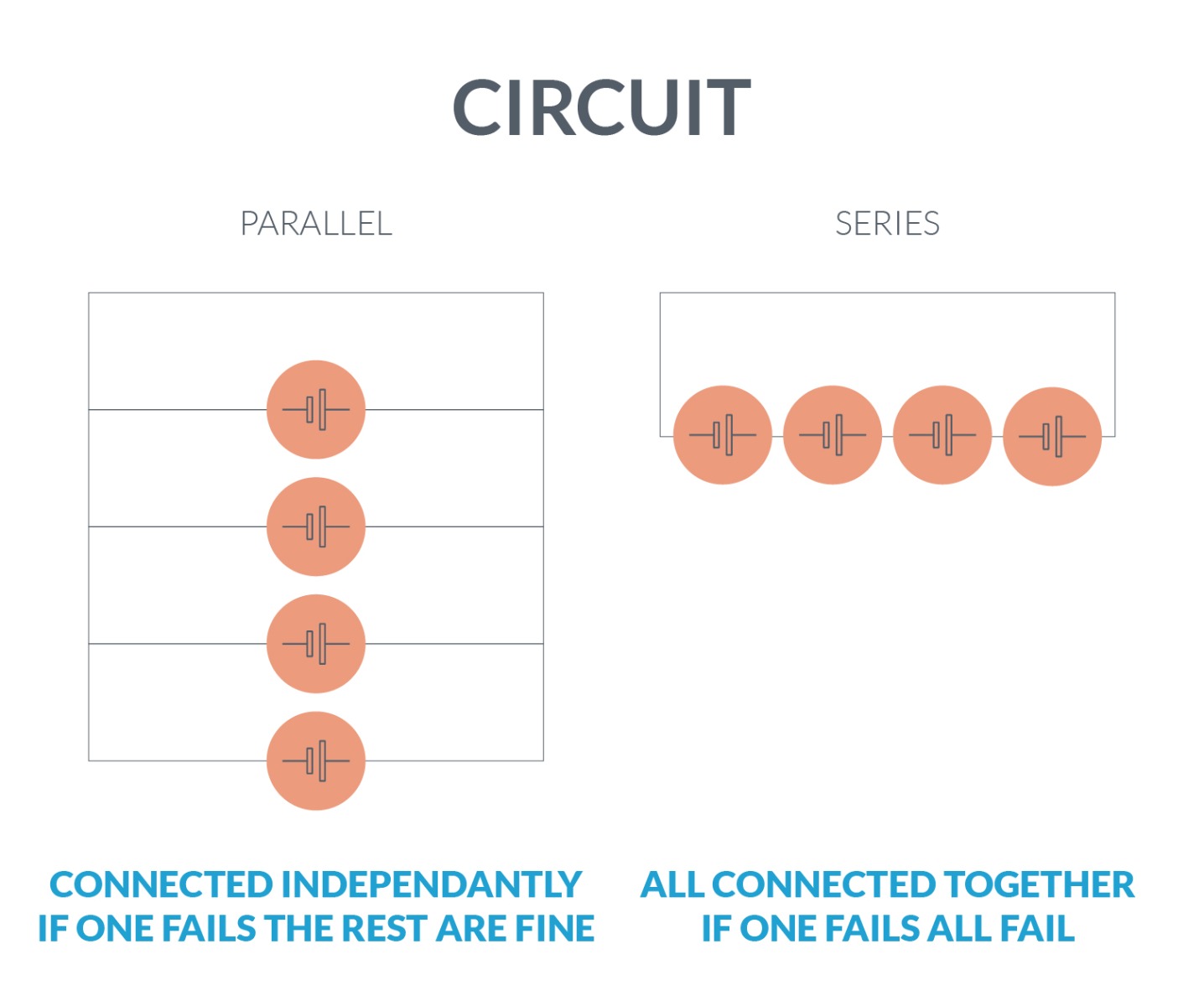
The prime benefit of the parallel string is that if a single battery fails, the UPS can still function (albeit at a diminished capacity) but when in series, a single dead cell will cause the entire string to inevitably fail. The best way to prevent this is to frequently test your batteries.
Battery Testing
Frequent UPS battery testing is a vital method to extend the life of your batteries – in fact, it addresses all three of the problems we’ve mentioned earlier and can help you prevent the costly replacement of all of your batteries by finding problems before they arise. While the majority of UPS systems on the market today will have some means to monitor voltage, they won’t monitor a single cell and if one battery goes, the effect will likely cascade and take out the remaining cells in the string.
The testing method used by UPS systems is better known as a battery impedance test and is conducted on every battery in the string in order to identify potential faults long ahead of time. The time it takes to conduct this will vary depending on the size of the battery but you can expect it to be 2-3 hours – this must be done by a professional due to the high voltages used.
Money Saving
As indicated, there cost-benefits to getting batteries tested. Below is an exemplary table comparing the price difference between battery testing and having to replace batteries due to unchecked problems.
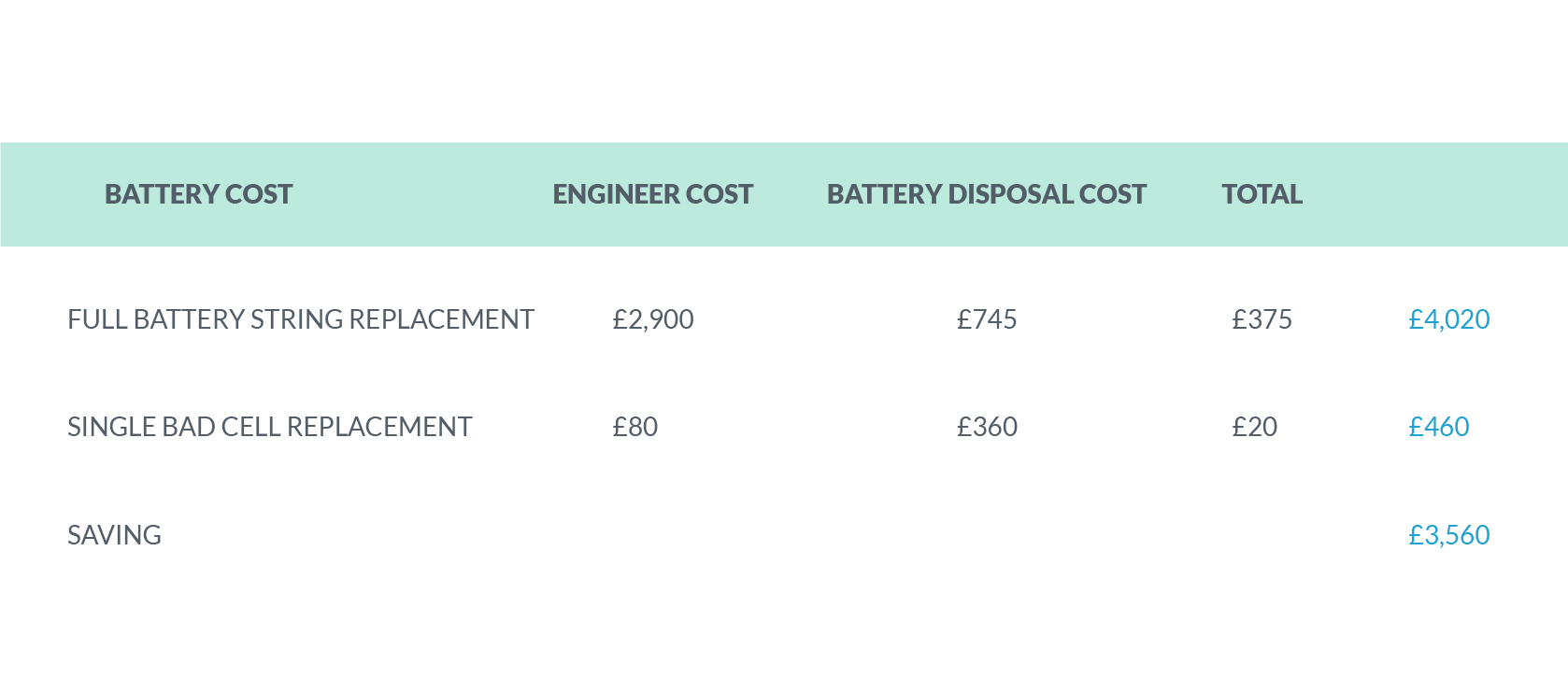
If you think your batteries could be at risk, don’t leave it up to chance – book a test today with UPS Systems.
UPS Systems have been supplying backup power solutions for over 25 years and can propose a solution regardless of the size of your requirement. If you have any questions or queries, please contact us. We can supply small UPS (Uninterruptible Power Supplies) to support a home office, to a larger UPS to keep the central server running or a diesel generator to manufacturing equipment.
UPS Systems plc supply a wide range of uninterruptible power supplies including those from Riello UPS and Eaton UPS as well as the UPS battery packs designed to go with them. UPS Systems plc also offers various diesel generators and industrial generators including 60kva generator, 80kva generator and 100kva generator from a wide range of manufacturers including AKSA generator, SDMO generator and Pramac generator.





















